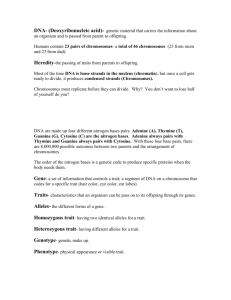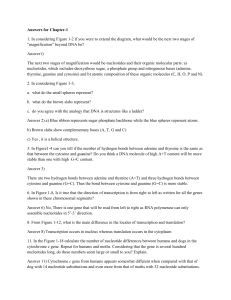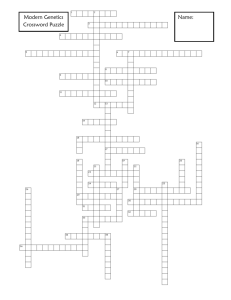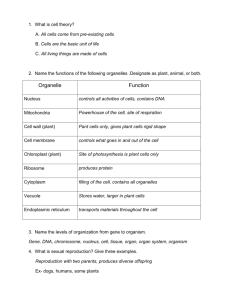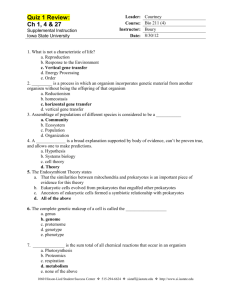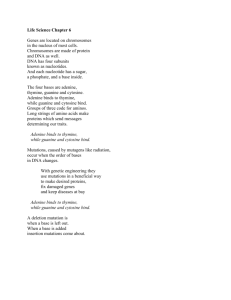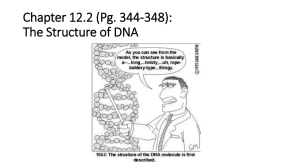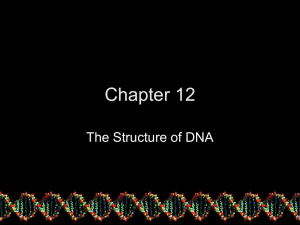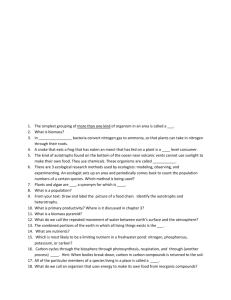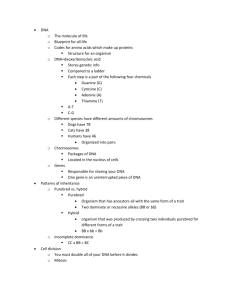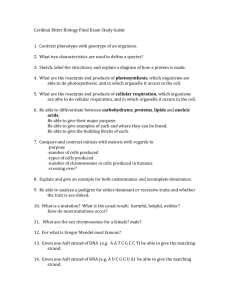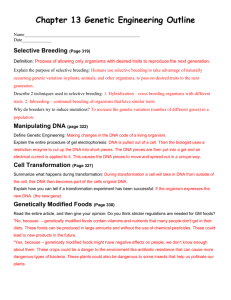Unit-4-part-2-Vobaulary-student-2015
advertisement
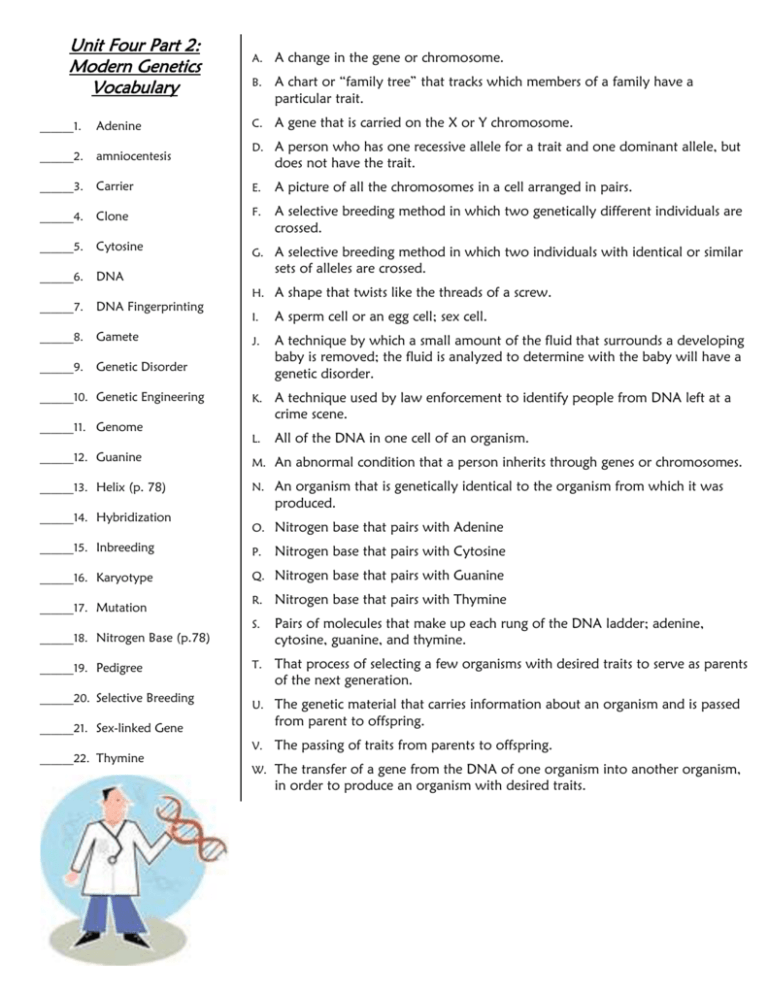
Unit Four Part 2: Modern Genetics Vocabulary A. A change in the gene or chromosome. B. A chart or “family tree” that tracks which members of a family have a particular trait. C. A gene that is carried on the X or Y chromosome. D. A person who has one recessive allele for a trait and one dominant allele, but does not have the trait. ______1. Adenine ______2. amniocentesis ______3. Carrier E. A picture of all the chromosomes in a cell arranged in pairs. ______4. Clone F. A selective breeding method in which two genetically different individuals are crossed. ______5. Cytosine G. ______6. DNA A selective breeding method in which two individuals with identical or similar sets of alleles are crossed. DNA Fingerprinting H. ______7. A shape that twists like the threads of a screw. I. A sperm cell or an egg cell; sex cell. ______8. Gamete J. ______9. Genetic Disorder A technique by which a small amount of the fluid that surrounds a developing baby is removed; the fluid is analyzed to determine with the baby will have a genetic disorder. K. A technique used by law enforcement to identify people from DNA left at a crime scene. ______10. Genetic Engineering ______11. Genome L. All of the DNA in one cell of an organism. ______12. Guanine M. An abnormal condition that a person inherits through genes or chromosomes. ______13. Helix (p. 78) N. An organism that is genetically identical to the organism from which it was produced. O. Nitrogen base that pairs with Adenine ______15. Inbreeding P. Nitrogen base that pairs with Cytosine ______16. Karyotype Q. Nitrogen base that pairs with Guanine R. Nitrogen base that pairs with Thymine S. Pairs of molecules that make up each rung of the DNA ladder; adenine, cytosine, guanine, and thymine. T. That process of selecting a few organisms with desired traits to serve as parents of the next generation. U. The genetic material that carries information about an organism and is passed from parent to offspring. V. The passing of traits from parents to offspring. W. The transfer of a gene from the DNA of one organism into another organism, in order to produce an organism with desired traits. ______14. Hybridization ______17. Mutation ______18. Nitrogen Base (p.78) ______19. Pedigree ______20. Selective Breeding ______21. Sex-linked Gene ______22. Thymine
